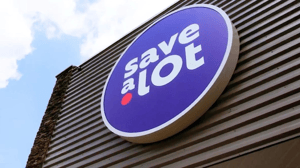Walmart’s U.K. Unit Makes Case for Sainsbury DealWalmart’s U.K. Unit Makes Case for Sainsbury Deal
Amid intense regulator scrutiny, Asda and Sainsbury’s promise to lower post-merger prices and cap gas margins in addition to divesting stores.

In an effort to save their proposed merger from antitrust scrutiny—and preserve a key cog of Walmart’s international reset—retailers Sainsbury’s and Asda have proposed divesting stores, then lowering prices and capping margins on fuel if the marriage is allowed to go through.
The proposed remedies come in response to initial findings of the U.K.’s Competition and Markets Authority (CMA), which earlier this year delivered what some viewed as a potential knockout blow to the $10 billion combination of Britain’s second- and third-largest grocers.
Walmart, which owns Asda, agreed a year ago to sell most of the company to its larger rival, Sainsbury’s, as part of a new approach to international holdings directing its investment to faster growing markets and digital properties. The deal was to generate about $4 billion for the Bentonville, Ark.-based retailer, which would be used to support new investments in places such as India, where it acquired the Flipkart business for $16 billion last year.
In a joint statement, Sainsbury's and Asda said they “strongly disagree” with the CMA’s provisional findings and said its analysis contained “significant errors.”
The companies said their response details supermarket and gas station divestitures across both brands that apply “a conservative yet reasonable threshold.” They did not say how many stores they proposed to divest.
In addition, they proposed the following post-merger remedies:
To deliver 1 billion euros (about $1.3 billion) of lower prices annually by the third year post-completion. This includes 300 million euros in the first year and a further 700 million euros over the following two years as the cost savings flow through. This would reduce prices by about 10% on everyday items, the companies said.
Sainsbury’s would cap its fuel gross profit margin to no more than 3.5 pence per liter for five years; Asda will guarantee its existing fuel pricing strategy.
The price commitments would be independently reviewed by a third party and the parties would publish the performance each year, holding them to public account.
Sainsbury's said it would move to pay small suppliers within 14 days; Asda will continue to pay its small suppliers within 14 days, in line with existing commitments.
The companies said they would create more than $2 billion in cost savings in three ways: by buying goods from suppliers at the lower cost that either company currently pays with suppliers; by using combined scale to buy goods at better prices; and by putting Argos departments into Asda’s stores. Argos is a home goods and electronics retailer owned by Sainsbury’s, offering store pickup and delivery. Those savings would support the price investments.
“We are trying to bring our businesses together so that we can help millions of customers make significant savings on their shopping and their fuel costs, two of their biggest regular outgoings,” Sainsbury's CEO Mike Coupe and Asda CEO Roger Burnley said in a joint statement.
“We hope that the CMA will properly take account of the evidence we have presented and correct its errors. We have proposed a reasonable yet conservative remedy package and hope the CMA considers this so that we can deliver the cost savings for customers."
The CMA final report on the merger is expected by April 30.
One U.K.-based observer, Thomas Brereton, a retail analyst for GlobalData, said the move to preserve the deal highlights the importance of scale as a means of future survival. Sainsbury’s, he noted, is experiencing particularly lackluster same-store sales.
“For Sainsbury’s to forge on—with what many see as an already lost battle—shows how pivotal Sainsbury’s feels consolidation at the top end of the grocery market is in order to stop long-term share decline at the Big Four, to use economies of scale and pressure on large suppliers to reduce shelf prices for shoppers,” Brereton said.
About the Author
You May Also Like






